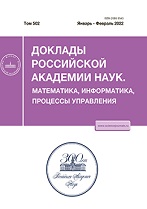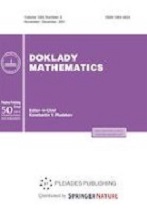|
This article is cited in 4 scientific papers (total in 4 papers)
MATHEMATICS
On the spectrum of a non-self-adjoint quasiperiodic operator
D. I. Borisovabc, A. A. Fedotovd
a Institute of Mathematics, Ufa Federal Research Center, Russian Academy of Sciences, Ufa, Russia
b Bashkir State University, Ufa, Russia
c University of Hradec Králové, Czech Republic
d Saint Petersburg State University, St. Petersburg, Russia
Abstract:
We study the operator $\mathscr{A}$ acting in $l^2(\mathbb{Z})$ by the formula $(\mathscr{A}u)_l=u_{l+1}+u_{l-1}+\lambda e^{-2\pi i(\theta+\omega l)}u_l$. Here, $l$ is an integer variable, while $\lambda>0$, $\theta\in[0,1)$, and $\omega\in(0,1)$ are parameters. For $\omega\notin\mathbb{Q}$, this is the simplest non-self-adjoint quasiperiodic operator. By means of a renormalization technique, we describe the geometry of the spectrum of this operator, compute the Lyapunov exponent on the spectrum, and describe the conditions under which either the spectrum is pure continuous or a point spectrum appears additionally.
Keywords:
quasiperiodic operator, non-self-adjoint operator, Lyapunov exponent, spectrum.
Citation:
D. I. Borisov, A. A. Fedotov, “On the spectrum of a non-self-adjoint quasiperiodic operator”, Dokl. RAN. Math. Inf. Proc. Upr., 501 (2021), 16–21; Dokl. Math., 104:3 (2021), 326–331
Linking options:
https://www.mathnet.ru/eng/danma215 https://www.mathnet.ru/eng/danma/v501/p16
|


| Statistics & downloads: |
| Abstract page: | 180 | | Full-text PDF : | 33 | | References: | 31 |
|





 Contact us:
Contact us: Terms of Use
Terms of Use
 Registration to the website
Registration to the website Logotypes
Logotypes








 Citation in format
Citation in format 
